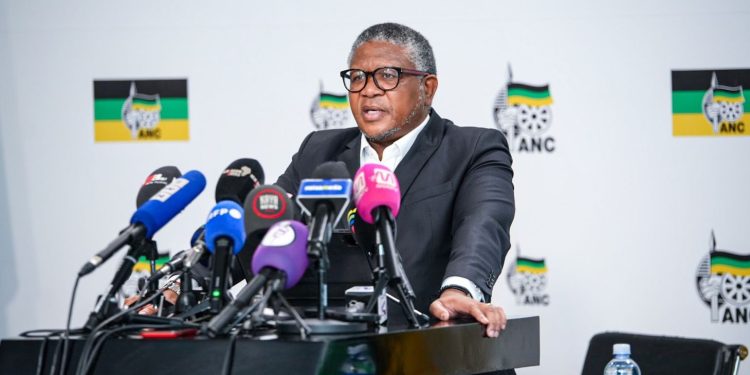- In the wake of a significant loss in KZN, ANC Secretary-General Fikile Mbalula emphasizes the party’s need to reconnect with voters, acknowledging past failures and committing to rebuilding trust through grassroots campaigns.
- The rapid growth of Jacob Zuma’s uMkhonto weSizwe (MK) Party has posed a serious challenge to the ANC, drawing former supporters with its focus on revolutionary ideals and promises of better governance.
- The ANC’s revival efforts face internal divisions and factionalism, while the MK Party continues to gain ground, fueled by Zuma’s enduring popularity. The upcoming 2029 elections will be crucial for the ANC’s future in KZN and nationally.
The African National Congress (ANC) is intensifying efforts to regain its influence in KwaZulu-Natal (KZN) following a substantial decline in support during the recent May elections. A major contributing factor to this decline has been the rise of the uMkhonto weSizwe (MK) Party, formed by former president Jacob Zuma, which has quickly gained traction and become a formidable force in the region.
At a rally in Durban, ANC Secretary-General Fikile Mbalula acknowledged the party’s setbacks, including internal divisions and challenges with service delivery, which have caused disillusionment among many voters. Mbalula stated, “The ANC remains the home of the people. Our task now is to reconnect with every citizen, address their concerns, and prove that we are still the movement capable of leading South Africa to prosperity.”
The ANC’s renewal strategy includes an extensive door-to-door campaign aimed at rebuilding relationships with communities, particularly those where voters have shifted their support to the MK Party. The party plans to empower local leaders to address pressing issues such as unemployment, inadequate services, and rising crime, hoping to restore its credibility and trust within the community.
The MK Party, under Zuma’s leadership, has disrupted the political landscape in KZN by emphasizing loyalty to the liberation struggle and promising improved governance. This has attracted a significant portion of the ANC’s traditional base, forcing the ruling party to rethink its strategies and work harder to reconnect with frustrated voters. Analysts note that the ANC’s struggles in KZN reflect broader challenges faced by the party across the country, highlighting difficulties in maintaining unity and public trust amid growing discontent.
However, the ANC’s road to recovery is fraught with obstacles. Persistent internal factionalism has complicated its efforts, and the MK Party continues to gain momentum, buoyed by Zuma’s lasting popularity in the region. Despite these challenges, Mbalula remains optimistic about the ANC’s future, expressing confidence in the party’s resilience and ability to recover. “The ANC has weathered storms before, and we will emerge stronger. This renewal is not just a slogan, it’s a promise to the people of KZN and South Africa as a whole,” he said.
With the 2029 elections on the horizon, the ANC is determined to reinforce its base in KZN, a region crucial to its electoral success. The success of the party’s rejuvenation efforts in this key province will have a significant impact on its prospects in KZN and across the country in the coming years.






















